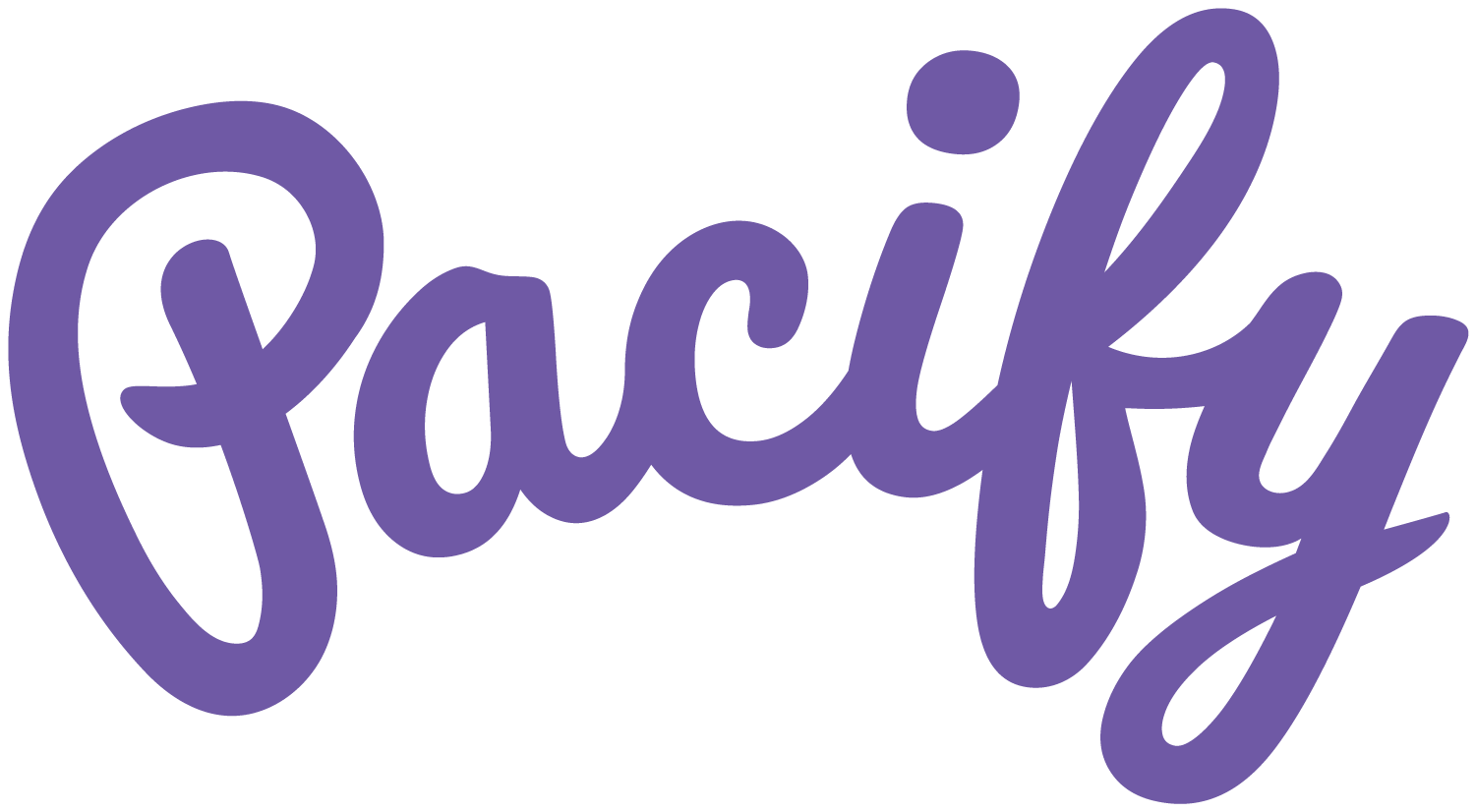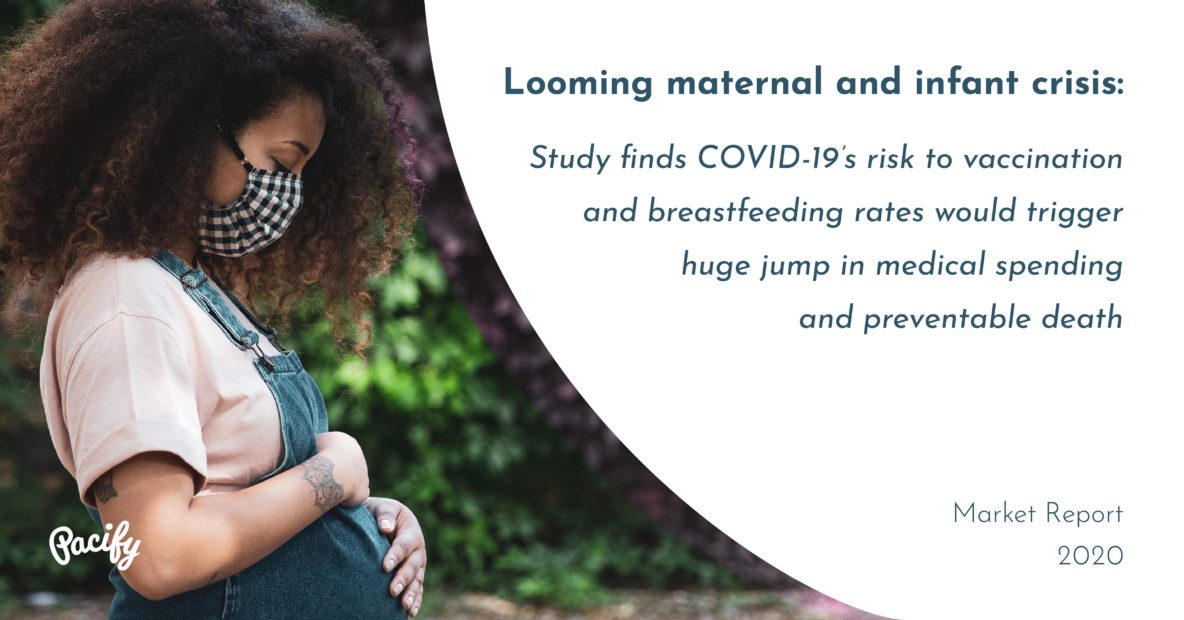Study examines the pandemic's impact on breastfeeding, vaccination rates, and their effect on health outcomes and medical spending
WASHINGTON, D.C. – September 15, 2020
Pacify Health, the country's leading lactation support and pediatric telehealth app, today published a new study on breastfeeding challenges during the COVID-19 pandemic and potential impact on maternal and infant health, and medical spending. The study features survey data from 1,000 new and expecting moms* across the U.S. on how COVID-19 has affected their plans to breastfeed, as well as new analyses on medical spending data and maternal mortality if national breastfeeding rates were to drop.
"From our survey, the data shows that a majority – 60% – of recent moms feel COVID-19 makes it harder to breastfeed," said George Brandes, Pacify's CEO. "In addition, we see the pandemic putting vaccination rates at risk, since 70% of moms are concerned about in-person medical visits post-delivery. This is a serious public health issue; our data modeling shows that even a 5% drop in breastfeeding rates could cost the US healthcare system more than $320 million in medical spending annually, and increase maternal mortality by more than 30%."
Despite these concerning findings, the study also reveals some positive data, with the majority of moms intending to breastfeed in some capacity despite the pandemic. However, breastfeeding experiences aren't equal across the board. New and expecting Black and Hispanic mothers are 57% more likely to report that COVID-19 has or would make it harder to breastfeed compared to White mothers, and 70% of moms covered by Medicaid say that COVID-19 will affect their ability to breastfeed, compared to 43% of moms covered by private insurance.
"Rectifying these inequalities will be critical to preventing negative health outcomes and unnecessary costs," said Brandes. "Telemedicine is uniquely positioned to help solve for this, as nearly 60% of new moms expressed a strong preference to receive virtual lactation support as opposed to an in-person lactation consultation. It's a solution that is quick to implement and easy to scale to moms who need this critical support."
Other key findings include:
More moms are breastfeeding due to COVID-19, but those covered by Medicaid lack support
- Over a quarter (27%) of new moms and about 1 in 10 expecting moms (9%) were not planning on breastfeeding but made changes to their feeding plans due to the pandemic.
- The large majority (93%) of recent moms who say that COVID-19 has made breastfeeding more difficult are still planning to breastfeed.
- While expecting moms covered by Medicaid intend to breastfeed exclusively at a similar or higher rate (21%) as expecting moms with commercial insurance (17%), new moms covered by Medicaid are less than half as likely (8%) to actually breastfeed exclusively, compared to moms covered by private insurance (17%), indicating a lack of breastfeeding support for moms covered by Medicaid.
Moms are concerned about in-person postpartum visits; would prefer a maternal telehealth solution
- Half (51%) of moms said they would attend their postpartum appointments, despite concerns, while 17% said they may try to postpone their scheduled appointments.
- Moms covered by Medicaid were 27% more likely to report that they may try to delay some scheduled appointments due to concerns about COVID-19, compared to mothers with commercial insurance.
- The majority (58%) of new moms said that if they had a breastfeeding question or problem, they would rather get lactation support from a video visit on their smartphone than have to seek in-person assistance.
- More than two-thirds of moms covered by Medicaid (67%) and three-quarters of moms with commercial insurance coverage (76%) who are interested in using telehealth would prefer a virtual service that's specific to maternal and lactation support, versus one from their general primary care provider.
"With the need to socially distance due to COVID-19, moms are understandably concerned about how to seek that support, which has traditionally been in-person," said Melanie Silverman, MS, RD, International Board Certified Lactation Consultant, and Chief Clinical Officer at Pacify Health. "Being able to virtually connect with a certified lactation consultant from the comfort and safety of home is clearly going to be critical in giving moms the support they will need to breastfeed successfully and pass on vital early immunities to their baby. While breastfeeding support has always been important, it's especially critical during the global pandemic we're in the midst of today. If U.S. breastfeeding rates are to stay as high as they are, we must ensure new moms don't feel isolated or unsupported."
*Methodology
Conducted in May 2020, the survey asked 500 expecting mothers and 500 mothers who had given birth within the past six months about how COVID-19 has affected their perceptions of and plans around in-person care, the value of breastfeeding, need for lactation support, and the role of telemedicine. Respondents represented 47 states and 91% completed high school or other secondary education. Respondent ages ranged from 18-24 (38%), 25-34 (46%) and 35 and over (16%). For more demographics, see the full report.
About Pacify Health
Pacify Health was founded on the idea that more can be done to use mobile technology to help families access excellent prenatal and pediatric care. Pacify's industry-leading mobile platform provides instantaneous, 24/7 support to new mothers. Mothers who download the app can connect via video-visit with clinicians including nurses and lactation consultants. There are no appointments or scheduling, and calls are answered in an average of less than 30 seconds. Pacify serves a diverse range of mothers via contracts with leading hospitals, employers, Medicaid managed care companies, state Departments of Health, the Women, Infants and Children (WIC) program, and breast pump manufacturers. In 2019, Pacify was acquired by Advantia Health as part of its commitment to continued investment in technologies that improve the lives and health of women and their families.
Advantia is transforming healthcare for all women – we're setting a higher standard of care and convenience while reducing unnecessary costs. Compassion and value inspire everything we do. We take time to listen, answer questions completely, and offer helpful technology between visits so that our patients are empowered and at ease. Alongside coordinated care, Advantia is pioneering care models that align incentives with the best interests of women and their families.
Learn more at AdvantiaHealth.com and Pacify.com

